Best electric guitar strings 2025: our top-rated strings for your electric
Keep your axe feeling fresh with the best guitar strings for electric guitar
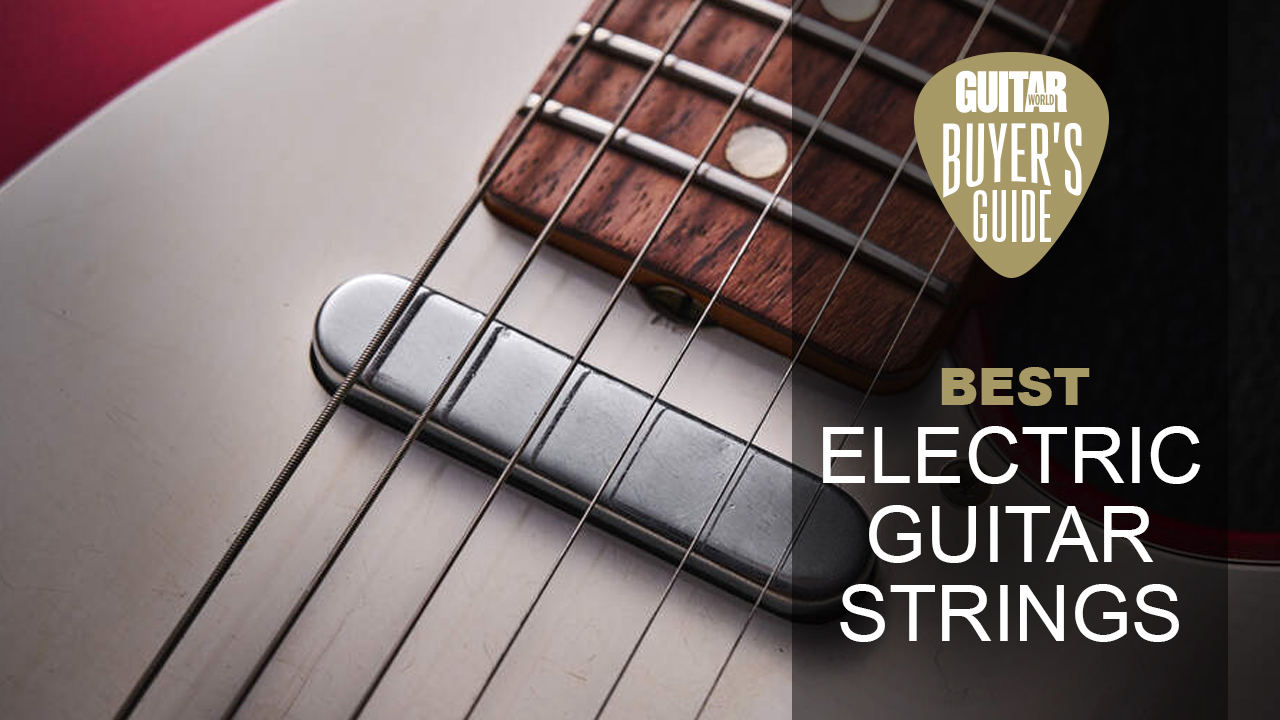
Changing guitar strings probably isn't something the average guitarist thinks about all that much. We tend to be creatures of habit and once we've settled on a brand and gauge that we like, we're typically set in our ways for life. If you're in this boat, you're doing yourself a disservice, because a fresh set of the best electric guitar strings can totally change the way your instrument plays.
There are a lot of different brands of strings out there at the moment, which can make it a bit of a headache to deviate from your favorite brand. So, to make things easier for you to choose, we've selected our favorite electric guitar strings by use case to help you narrow things down. Whether you want to try a set of the best coated electric guitar strings like Elixir's Optiweb, or you need a workhorse set like the Ernie Ball Slinkys, you'll find all the best options here.
We've also included a how-to-choose section that gives some great advice on getting the right set of strings for your particular playing style. If you need to go further into the wide world of strings, have a look at our FAQs section which gives loads of expert advice on a variety of common questions about guitar strings.
On the hunt for guitar gear savings this Black Friday? Shop our handpicked selection of the best Black Friday guitar deals.
Product guide
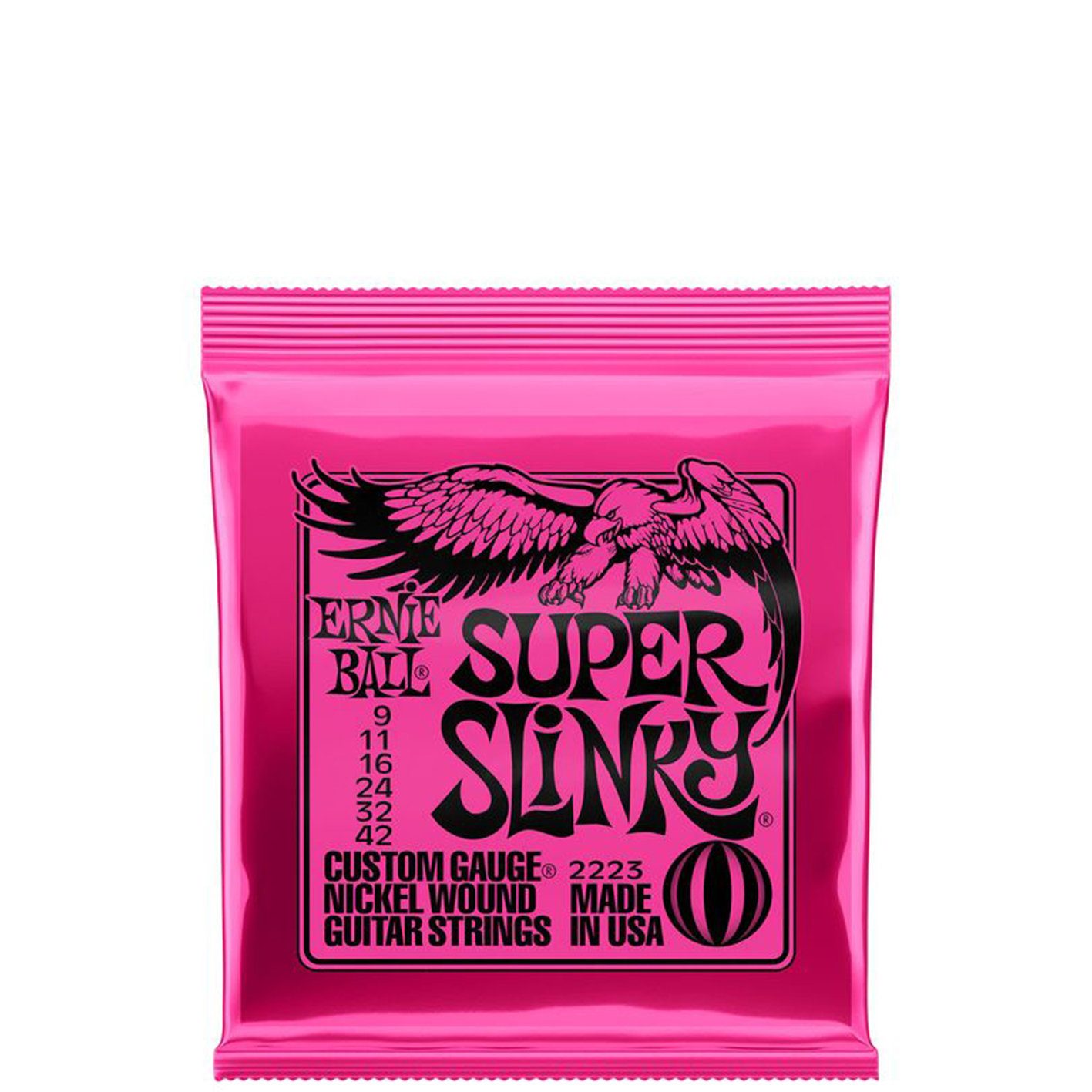
Materials: Nickel-plated
Coating: No
+ Tried and tested
+ Durable
+ Great sound
- Some players prefer coated strings
There's a reason why the Ernie Ball Slinky sets are among the best-selling guitar and bass strings globally. These nickel-plated strings marry up performance, durability, sound, and price into a package that ticks a lot of boxes.
The range is broad too; 17 different gauges are available in total, ranging from the 8-38 gauge Extra Slinky right up to the 12-62 gauge Mammoth Slinky – and they even have strings fit for a baritone guitar. Ernie Ball has even introduced some 'half' gauges, like the 10.5-52 Mondo Slinky. Whatever your playing style, there's a set that'll suit you just right.
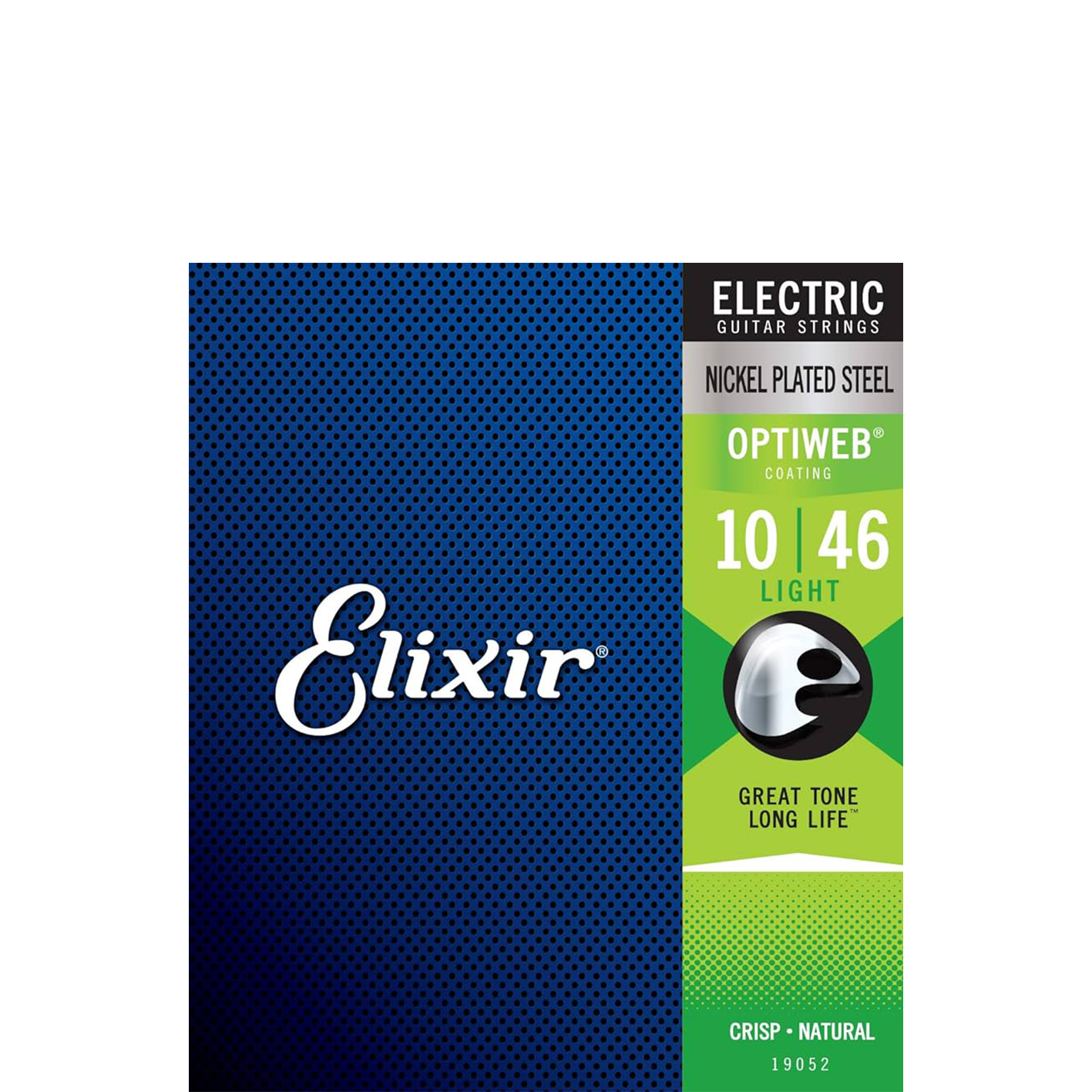
Materials: Nickel-plated steel-wrapped wire
Coating: Optiweb
+ Extremely hard-wearing
+ Coating doesn't impact sound
+ Bright and resonant
- Feel isn't for everyone
Some string brands opt to use different coatings in an effort to prolong the life of their strings. Elixir is one such brand, utilizing its patented Optiweb treatment onto the strings. Coating strings isn't without controversy; some players feel the treatment takes out some of the strings' natural resonance.
In our experience, that may be true for some brands but not for Elixir. These strings, during our testing, sounded bright and resonant, like uncoated strings, but generally lasted noticeably longer. We'd still advocate fairly regular changes, but if you do find yourself with a month-old set of Elixirs, you'll likely not be disappointed.
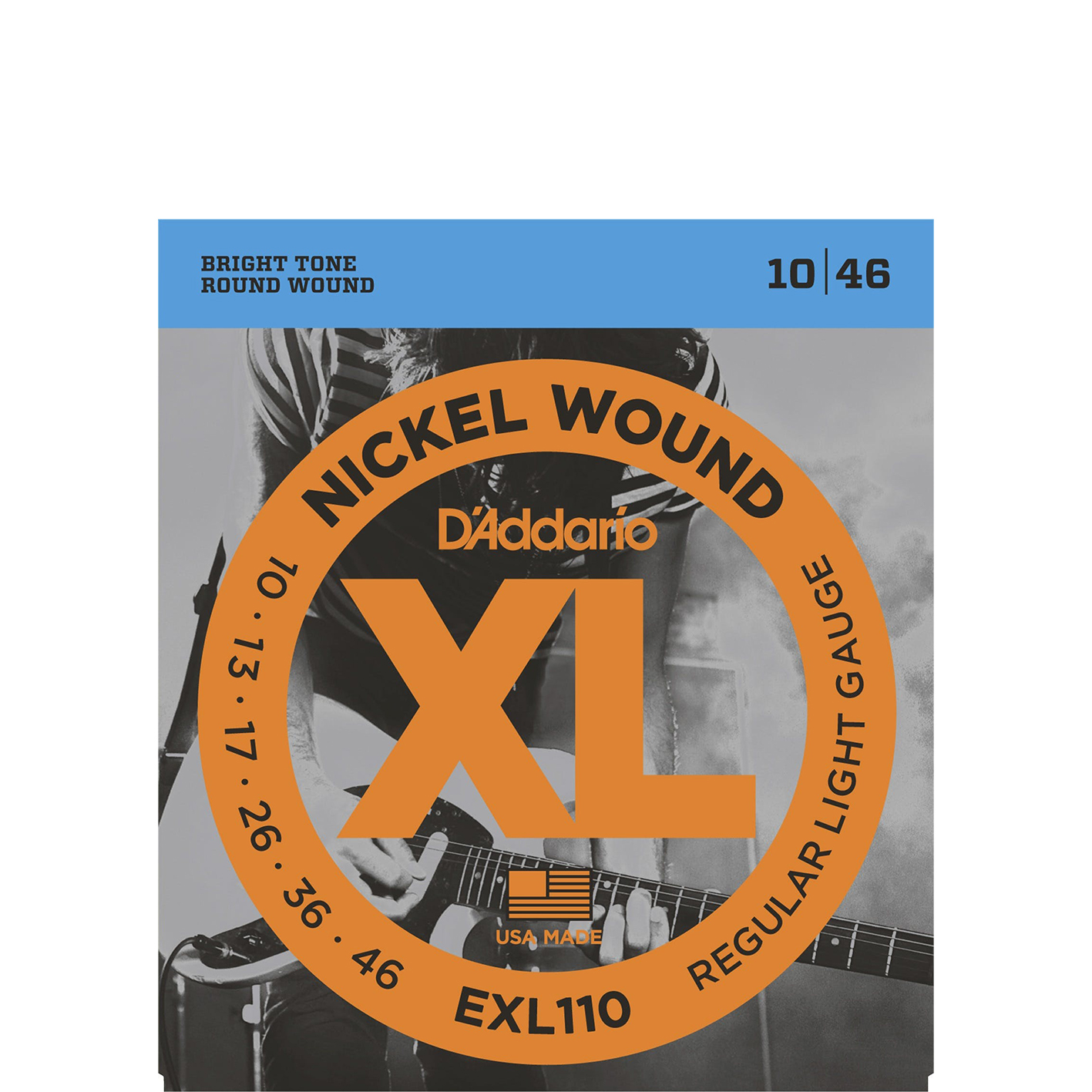
Materials: Nickel-wound
Coating: No
+ Massive range of materials
+ Wide gauge options
+ A best-seller
- Could give option paralysis
The D'Addario XL range incorporates six different construction methods, each with its own characteristics. This includes the XL Chromes – which are flatwound to deliver increased low-end smoothness; the XL Nickel Wound – ideal 'everyday' strings; the XL Pure Nickel – which give off that vintage flavor; XL Prosteels – with increased output and brightness; the XL Half Rounds – which are semi-flat to alter their feel, and the XL Coated Nickel – which have a slightly longer lifespan than a normal set of nickel wound strings – so you've got a few options to choose from there.
For the purpose of our tests, we used the XL Nickel Wound strings, and found that the tone they helped create was a tasteful blend of brightness, punch and low-end warmth. Not too bright, but not too dark either.
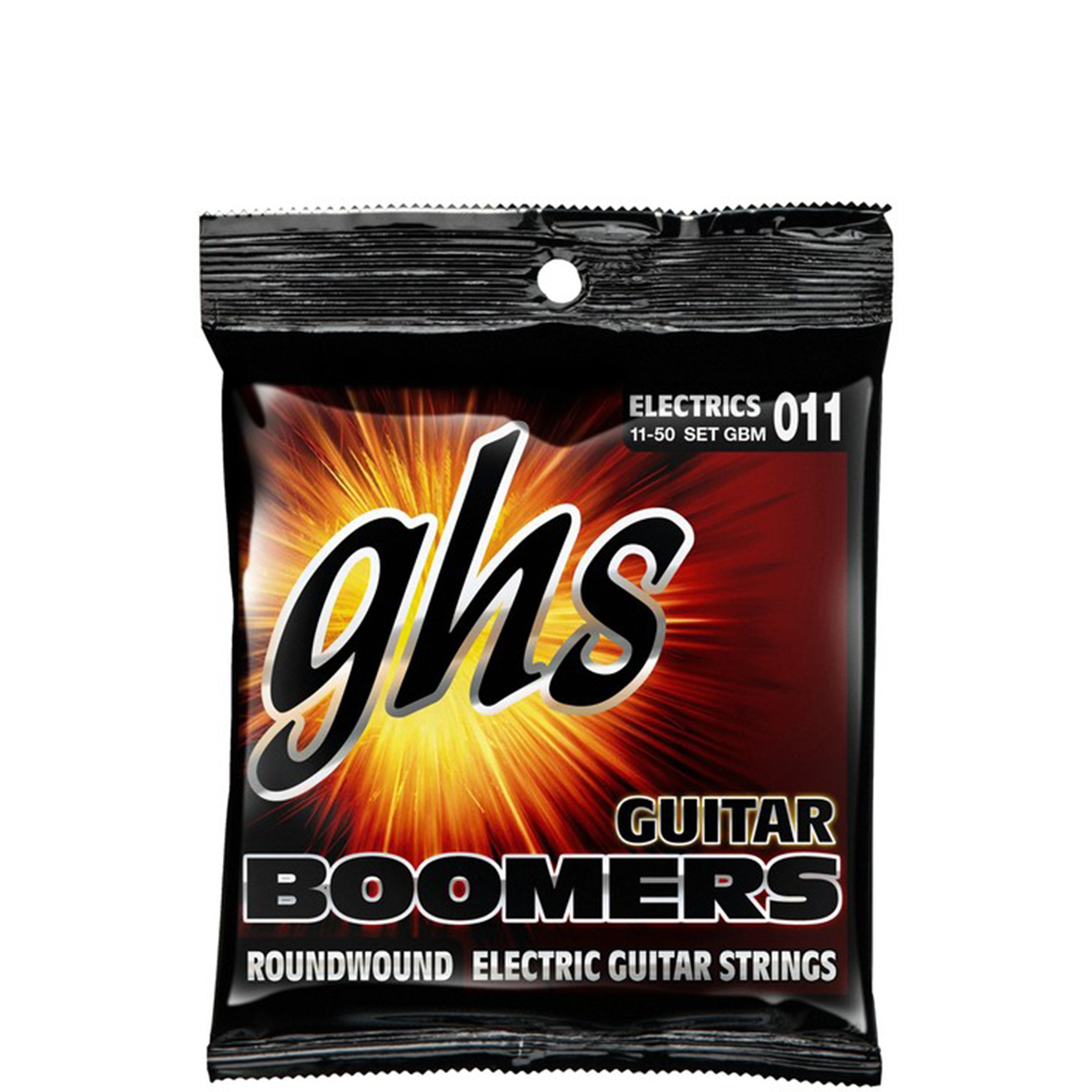
Materials: Roundwound nickel-plated steel
Coating: Yes
+ Bright tone
+ Nickel-plated
+ Reasonably priced
- Not a huge range
We discovered during testing that the GHS Boomers offer a nice, bright tone thanks to the nickel-plated steel around a round steel core. Whereas in the past string brands solely utilized pure nickel, for whatever reason it was found that this wasn't viable anymore. Hence we have nickel plated.
Thankfully, the Boomers deliver everything you want in a package that doesn't cost the earth. While the range isn't the widest in terms of available gauges, what is there is good quality. Overall, the Boomers are great value strings, too. They definitely run the risk of being too bright for some, however - so it's worth figuring out what you really want your tone to sound like in the long term.
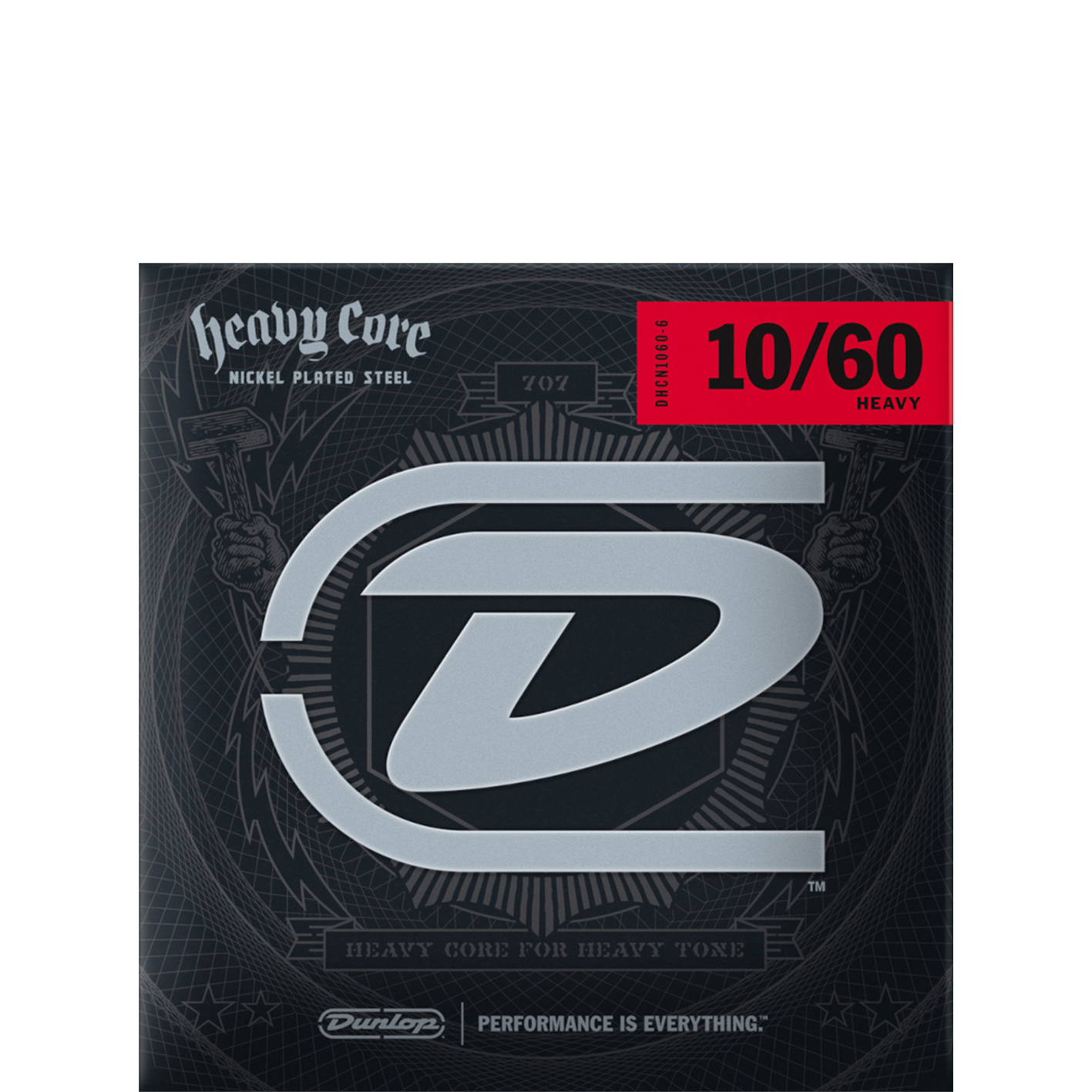
Materials: Nickel-plated steel
Coating: No
+ Great for heavier styles
+ Downtune-friendly
+ Strong
- Not for lighter players
Anyone who has played below standard E will know you can fall prey to the dreaded muddiness in your tone, or from floppy strings. The Dunlop Heavy Core strings are wrapped using a slightly different ratio to make them ideal for these playing styles and rid your life of those problems.
When we tested a set, we discovered a defined low end, plenty of clarity in the mids, and added durability so you can really dig in when you're palm muting. We spent the whole time downtuned, and these strings perform optimally in those areas.
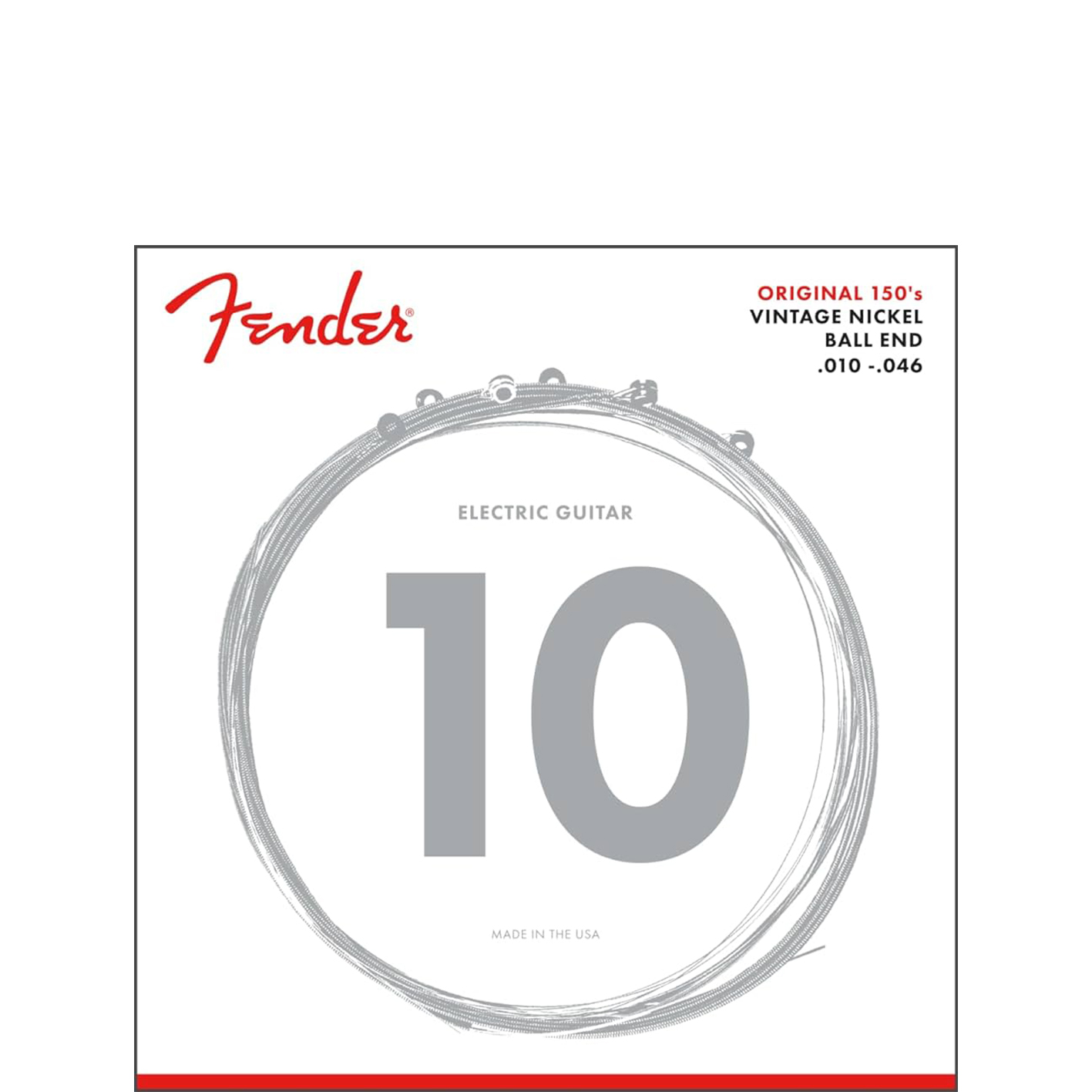
Materials: nickel core, wrapped with nickel wire
Coating: No
+ Vintage tone
+ Reduced finger squeak
+ Blues-friendly
- If you don't want vintage
If you own a Strat, you'll want to look at these. The Fender Pure Nickel sets feature a nickel core, wrapped with a nickel wire cover. This delivers tons of vintage tone, and also has the side benefit of reducing finger squeak as you traverse around the fretboard.
During our testing, we found these strings brought a type of brightness to the party that mingles perfectly with a single-coil pickup – and while these strings may not be for heavy players, they'll do just about anything else. The strings feel silky smooth straight out of the packet, and the pure nickel core allows the guitar's inherent tone to shine through.
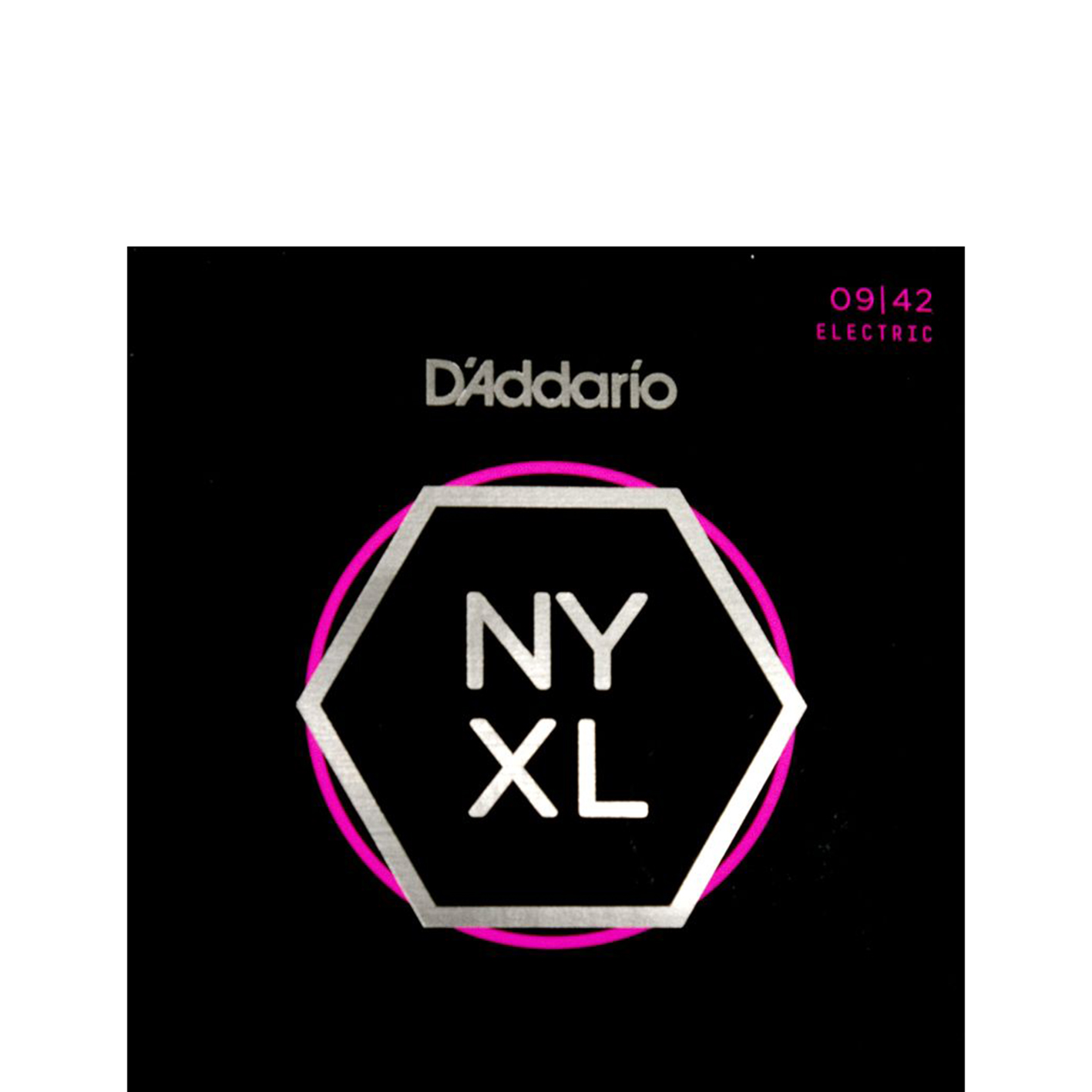
Materials: Nickel-plated
Coating: Yes
+ Great for whammy playing
+ Top tuning stability
+ Huge range
- Expensive for non-coated strings
As one of the biggest names in strings, you can expect good things from D'Addario. And, with their flagship range, they don't disappoint. The D'Addario NYXL range is designed with strength in mind. By incorporating a high-carbon steel core with nickel-plating, the NYXLs can withstand all manner of abuse from whammy bars.
D'Addario itself says the big selling point with these sets is their tuning stability, and after testing, we'd have to agree. Apparently, due to the way they're constructed and the materials used, they retain tune far better than standard steel. And with nearly 20 different gauges to choose from, there will doubtless be a set to suit you. Yes, they are a bit expensive – but you get a lot for your money here.
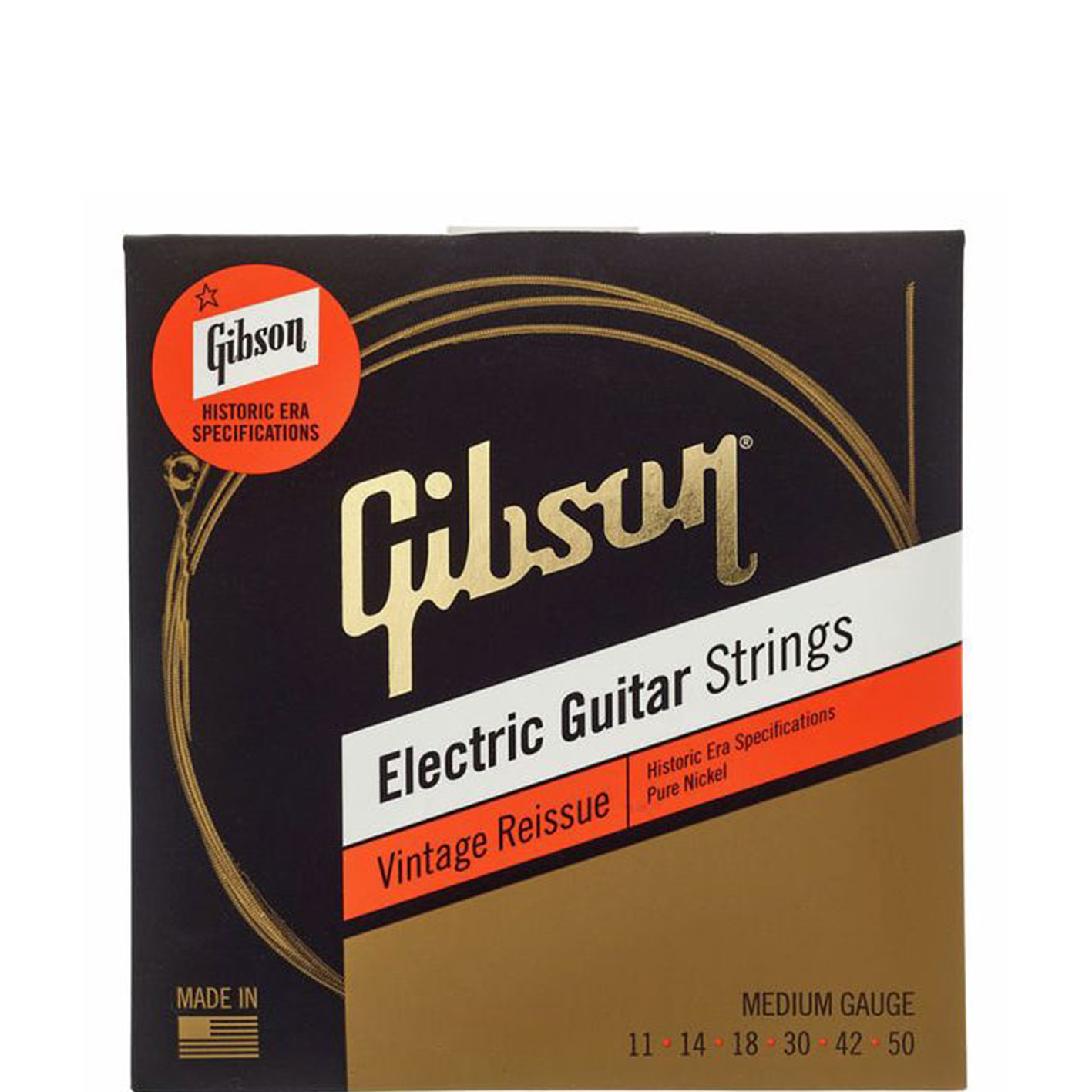
Materials: Pure nickel
Coating: No
+ 100 percent pure nickel
+ Warm, clear tone
+ Great for string bends
- Tone can be too warm
Continuing the nickel theme, we have the Gibson Vintage Reissue. These strings are 100 percent pure nickel, delivering a warm tone with amazing clarity. The pure nickel composition gives the tone a more mellow feel, as well as making them easier for string bends. We found during testing, however, that these strings push you onto your bridge pickup more often than not due to the extra warmth of the string.
Gibson does offer other slight variants in this particular range, including the nickel-plated Brite Wires and a set specifically for its Les Paul models (you may have heard of these guitars), but we opted for the Vintage Reissue as they deliver a specific tone, and do it quite brilliantly.
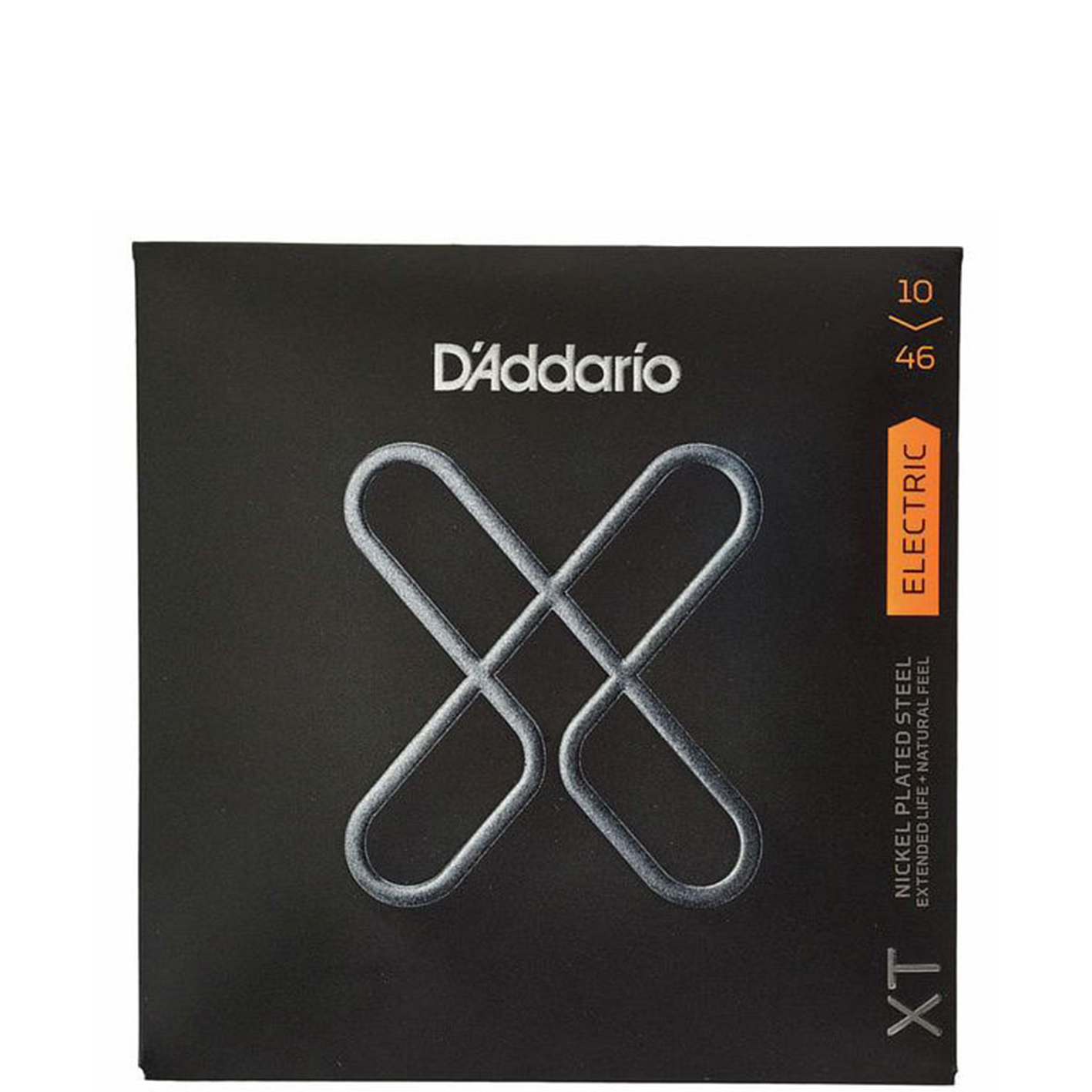
Materials: High-carbon steel core, nickel-plated steel
Coating: Yes
+ Flagship D’addario range
+ Coating on all strings
+ Great feel
- Coating can feel a bit too slippery
These premium electric strings combine some of D’Addario’s finest technology. Featuring the high-carbon steel core seen in the NYXL series, as well as a thin, hydrophobic coating, the D’Addario XT sets retain that fresh string sound for longer. From our testing, we also found that they deliver amazing break resistance and hold their tuning better than most.
All six strings enjoy a coating too – it’s not just the wound strings like in some other coated sets. The feel isn’t wildly different from uncoated strings too so the D’Addario XTs provide the best of both worlds. If you’re looking for the best electric guitar strings for tuning stability, sound, break and corrosion resistance, and longevity then these could well be the ones.
How to choose
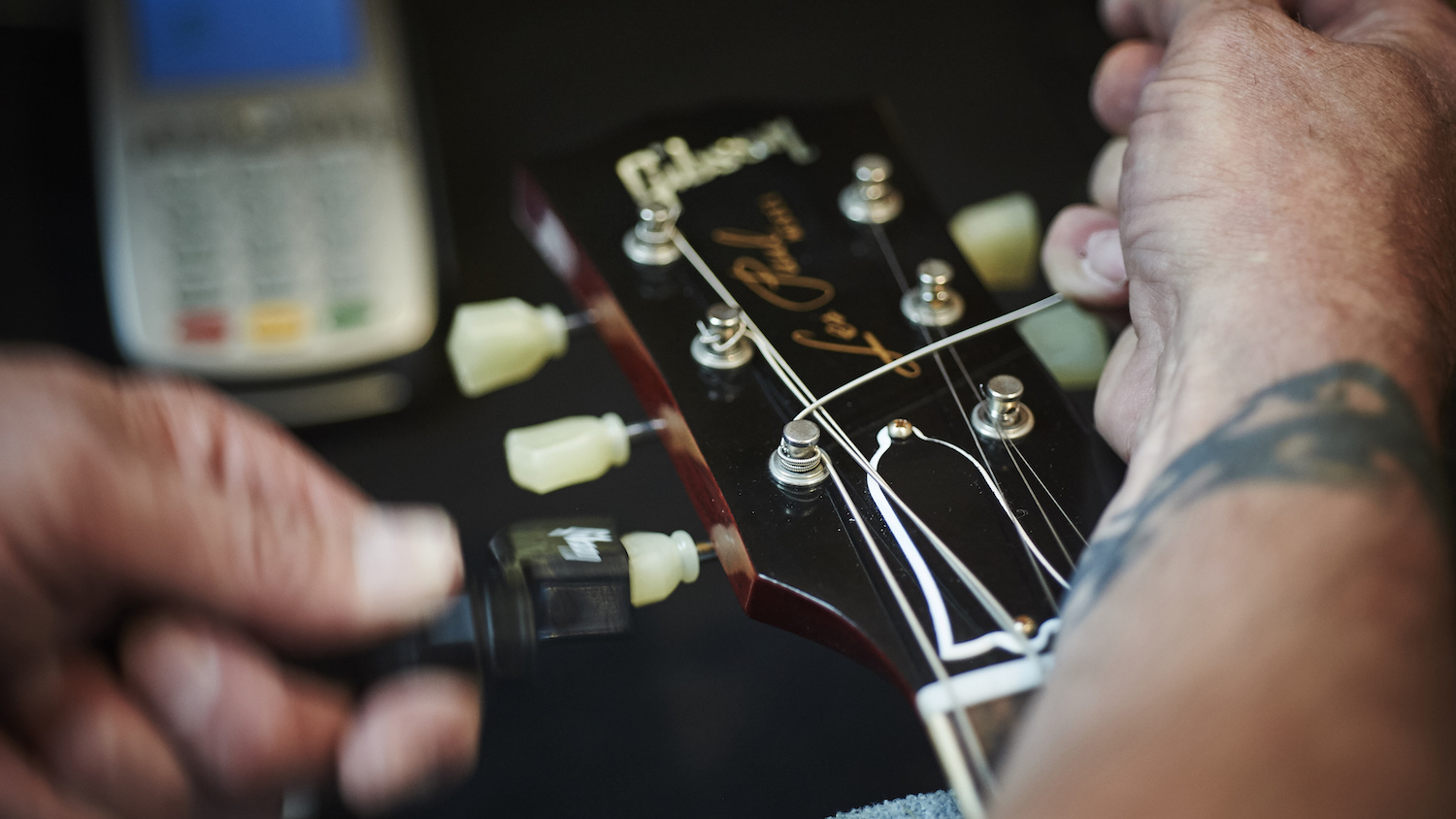
Although guitar strings are a pretty inexpensive purchase compared to something like a new acoustic guitar or pedalboard, they can help you break out of a creative rut by giving your guitar a new lease of life.
There are many, many different sets of electric guitar strings out there, and different players will find that certain brands and gauges (thickness) work better for them than others. It’s a fairly subjective thing, so it’s worth trying a few different sets out and seeing what you prefer.
It’s hard to talk about electric guitar strings and not talk about Ernie Ball Slinkys - you’ll probably recognise the packet and to be honest, they’re difficult to fault. They offer loads of different gauges to suit personal preference and they sound great - the same can be said for the D’Addario EXL range too.
We love the Elixir Optiwebs too - these have to be some of the best electric guitar strings on offer because of their unique coating which helps them sound fresher for much longer. Recently, the D’addario XT range have made some pretty great strides as well, offering a protective coating on all six strings, as opposed to just the three or four wound strings.
Glossary of terms
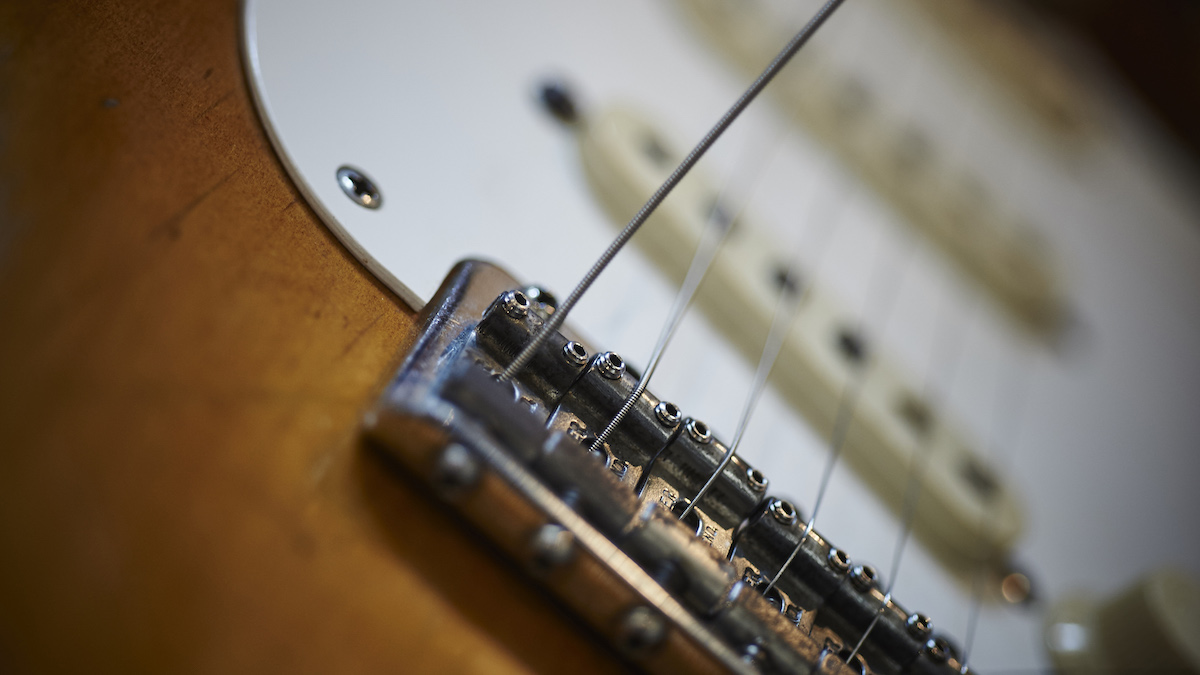
Confused about some of the jargon surrounding electric guitar strings? Below are a few key terms you should know.
Core wire: The inner material of a string, typically round or hexagonal, which affects its overall sound and feel.
Gauge: The thickness of the strings, which affects playability and tone.
Nickel-plated: A common string material that combines nickel and steel for warmth and clarity.
Stainless steel: String material known for its bright sound and resistance to corrosion.
Coated strings: Strings that have a protective coating to prolong lifespan and resist dirt.
Roundwound: A type of string that has a round wire wrap, providing a bright tone and pronounced attack.
Flatwound: Strings that are wrapped with flat wire, producing a smoother feel and warmer tone.
Half-round: A hybrid string that combines features of roundwound and flatwound for a balanced tone.
Tension: The physical pressure exerted on the guitar neck by the strings; crucial for setup.
Lifespan: Refers to how long strings last before they need to be changed, influenced by material and playing style.
String action: The height of the strings above the fretboard, which affects playability and comfort.
Pickup: The device that captures the vibrations of the strings and translates them into electrical signals.
Intonation: The accuracy of pitch along the fretboard; affected by string gauge and bridge setup.
String winding: The process of wrapping wire around the core of the string, influencing tone and feel.
Hex core: A string core that has a hexagonal shape, commonly used in electric guitar strings for better grip in winding.
FAQs
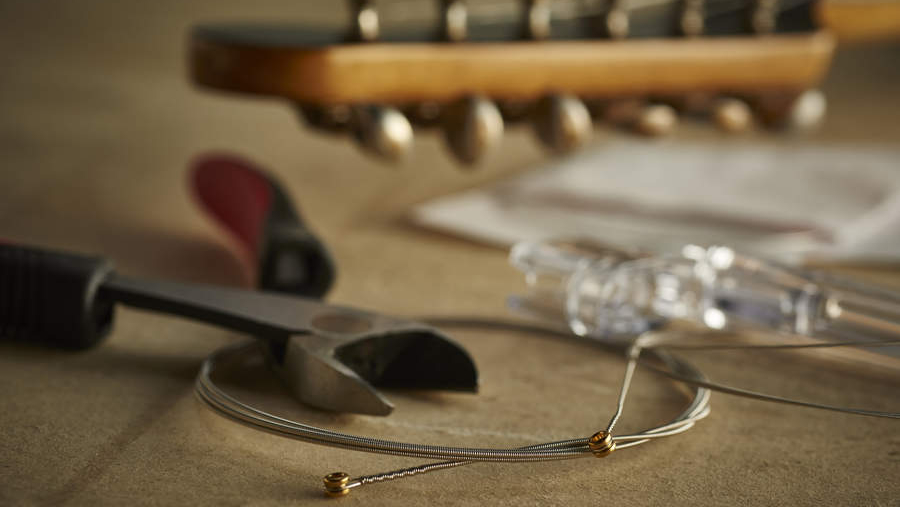
What are electric guitar strings made of?
The best electric guitar strings are made from various materials but most will consist of a metal (usually steel) core, with windings wrapped around the bottom three strings. Some heavier gauge strings might feature a wound G string too. The windings tend to be either nickel plated, pure nickel or stainless steel – though there are others like cobalt.
Nickel plated strings are the most popular as they yield a balanced and even response. Nickel strings tend to be fairly warm and mellow, and steel strings are brighter, so nickel plated steel is a great combination of the two! You can think about the pickups on the guitar you’re restringing – if the pickups are naturally bright sounding, you could mellow them out with some pure nickel strings, for example.
What are the benefits of coated electric guitar strings?
The market now has more coated strings than ever. As the name suggests, these have a very thin coating around the strings that helps prevent dirt and sweat from corroding them. The result is strings that last longer and retain that fresh ‘new string’ sound for longer too. However, they do tend to cost more, and some players don’t like the feel of the coating. That said, there are newer coated strings, like the D’addario XTs, that feel almost the same as non coated strings.
Which string gauge should I use?
One of the main considerations to make when shopping for the best electric guitar strings is the gauge. The gauge refers to the thickness of the strings, and is measured in thousands of an inch – you’ll often hear them referred to as 9s or 10s. This means that the top string is .009 or .010 of an inch thick. This can make quite a big difference to how the strings feel under your fingers.
The main contact between you and your guitar happens at the string, so it’s important to find the right gauge for you. Players with a heavier touch might prefer heavier strings as they might knock them out of tune less. Those who tune down below standard also tend to gravitate towards thicker strings as they will hold tuning better.
Lighter strings mean there is physically less string to move, so bending is easier. For some, light strings are too easy to bend, and find themselves going too far with it – it really is about matching your left and right hand touch with the right gauge, which might take a little trial and error.
There’s no right and wrong when it comes to gauges – it all boils down to personal preference. While most beginners tend to find it easier using lighter strings, many professionals stick with them as they get used to the touch and know how they respond. Some claim that you’ll get better tone from thicker strings, but we’d suggest finding what’s more comfortable for you – that’s the most important thing!
When should I replace the strings on my electric guitar?
As previously stated, there are no hard and fast rules for when you should change your strings. A lot of players do it every couple of months or so, but if you’re playing for three hours every day, then you’re going to wear the strings out much quicker. If you’re playing live, then you’re probably going to sweat more which will wear them out quicker too - most pros will usually change strings after every gig.
The amount you'll need to change your strings will also vary. Regular performers will want to change strings for every show to ensure their guitar sounds the best it can. Ditto if you're spending time in the studio. On the other hand, if you're only playing at home you'll probably look to change them once a month or so.
The reason you should change strings so often in certain situations is that strings have a short period of time when they're performing at their optimum level.
Things that can affect this include temperature and humidity changes, sweat and other corrosive materials, and your own playing technique. With that in mind, let's take a look at some of the best electric guitar strings on the market today.
Read our feature showing you how to restring an electric guitar.
Can you use electric guitar strings on an acoustic?
Whilst acoustic strings might fit on your electric, they aren’t going to sound good. The best electric guitar strings are made using materials that work well with the pickups on your guitar, whereas acoustic strings are made differently.
How we test electric guitar strings

For us, testing electric guitar strings is a rather enjoyable process, as it involves, well, playing our guitars! Therefore, we put them through several everyday situations to make sure we are thoroughly testing the strings.
We'll start by stringing the guitar with a fresh set of strings and observing how long they take to settle in and hold their tuning. We are looking to see how quickly the strings become usable in this test. Of course, ideally, we would like this to be as quick as possible, with the best electric guitar strings taking minutes to become stable in their tuning, without the need to excessively pull and stretch the strings.
Next, we need to test how the strings feel to play. For us, the best strings should make playing the guitar a joy. The strings should feel smooth and not sticky. When it comes to coated strings, we prefer not to notice the coating while we play. Speaking of corrosion, that brings us on to the longevity of the strings. To test how long a set of strings lasts, we'll keep the strings on our guitar for as long as we can, taking note of when they start to tarnish and lose their bright, snappy sound.
Now, how good a set of strings sounds is very important to every guitar player. To test the tone of the strings, we make sure to play a wide variety of styles to see how the strings handle the different musical genres, paying close attention to how the overall tone of our guitar has changed with the addition of the new strings.
Read more about our rating system, how we choose the gear we feature, and exactly how we test each product.
Why trust us?
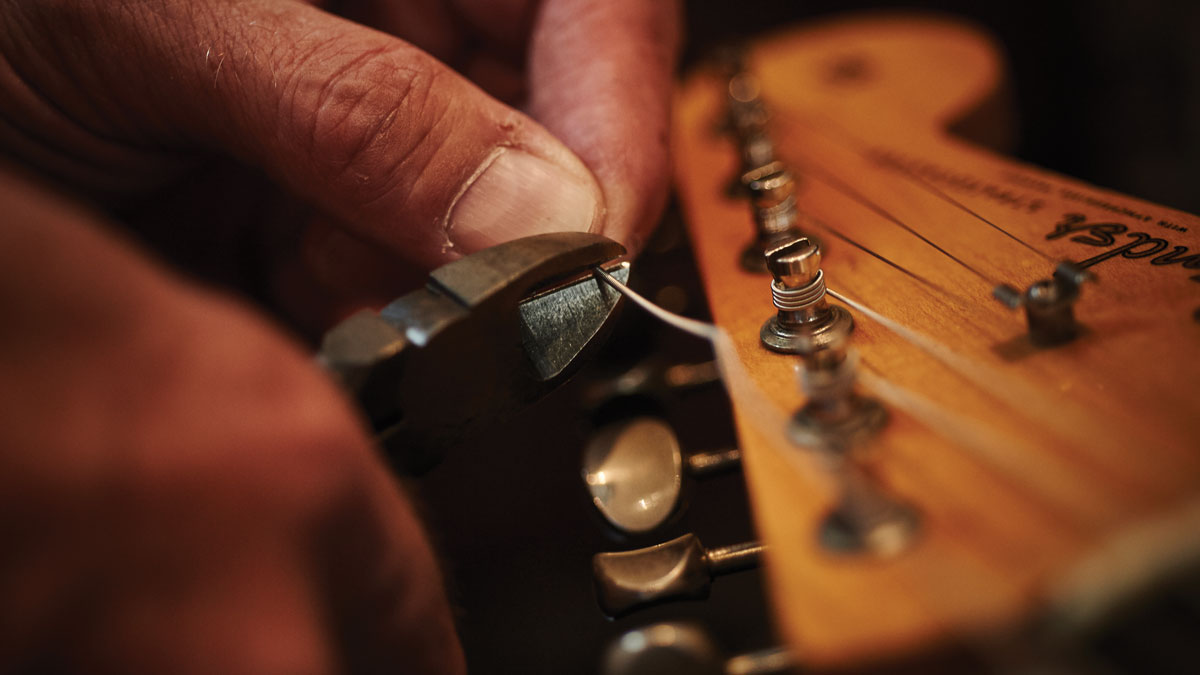
☑️ A global audience of 3.8 million guitarists monthly
☑️ 1,200+ reviews on GuitarWorld.com
☑️ 30+ years of product testing at Guitar World
Guitar World boasts over 44 years of expertise and stands as the ultimate authority on all things related to guitars. The magazine and website feature expertly written gear round-ups and top-quality, authoritative reviews penned by a team of highly experienced industry professionals.
Guitar World's inaugural print issue hit the shelves in July 1980, and ever since, it has been captivating players and enthusiasts with engaging lessons, insightful interviews with the biggest guitar heroes, and priceless buying advice for newbie players.
Furthermore, GuitarWorld.com continues this legacy online and serves as the hub of the world's foremost authorities on guitar playing. The site not only hosts content from Guitar World but also showcases articles from respected publications such as Guitarist, Total Guitar, Guitar Techniques, and Bass Player. With a reach extending to 3.8 million players each month, GuitarWorld.com is a go-to destination for guitar fanatics globally.

Daryl is a Senior Deals Writer at Guitar World, where he creates and maintains our 200+ buyer's guides, finds the best deals on guitar products, and tests the latest gear. His reviews have been featured in prominent publications like Total Guitar, Guitarist, Future Music magazine, and MusicRadar.com.
During his career, he has been lucky enough to talk to many of his musical heroes, having interviewed Slash and members of Sum 41, Foo Fighters, The Offspring, Feeder, Thrice, and more. In a past life, he worked in music retail. For a little under a decade, he advised everyone from absolute beginners to seasoned pros on the right gear for their needs.
Daryl's world doesn't just revolve around guitars either; he also has a passion for live sound. Daryl is a fully qualified sound engineer who holds a first-class Bachelor's degree in Creative Sound Production from the University of Abertay and has plenty of experience working in various venues around Scotland.

Matt is a Junior Deals Writer here at Guitar World. He regularly tests and reviews music gear with a focus on guitars, amps, pedals, modelers, and pretty much anything else guitar-related. Responsible for over 60 buying guides, a large part of his role is helping guitarists find the best deals on gear. Matt worked in music retail for 5 years at Dawsons Music and Northwest Guitars and has written for various music sites including MusicRadar, Guitar Player, Guitar.com, Ultimate Guitar, and Thomann’s t.blog.

After spending a decade in music retail, I’m now a freelance writer for Guitar World, MusicRadar, Guitar Player and Reverb, specialising in electric and acoustic guitars, bass, and almost anything else you can make a tune with. When my head’s not buried in the best of modern and vintage gear, I run a small company helping musicians with songwriting, production and performance, and I play bass in an alt-rock band.
Related buyer's guides
You can trust Guitar World
- Take a look at the best guitar gear essentials and accessories
- Supercharge your sound with the best guitar tuners around
- Get plugged in with the best guitar cables
All the latest guitar news, interviews, lessons, reviews, deals and more, direct to your inbox!

Daryl is a Senior Deals Writer at Guitar World, where he creates and maintains our 200+ buyer's guides, finds the best deals on guitar products, and tests the latest gear. His reviews have been featured in prominent publications like Total Guitar, Guitarist, Future Music magazine, and MusicRadar.com.
During his career, he has been lucky enough to talk to many of his musical heroes, having interviewed Slash and members of Sum 41, Foo Fighters, The Offspring, Thrice, and more. In a past life, Daryl worked in music retail. For a little under a decade, he advised everyone from absolute beginners to seasoned pros on the right gear for their needs.
Daryl is a fully qualified sound engineer, holding a first-class Bachelor's degree in Creative Sound Production from the University of Abertay.
- Matt McCrackenJunior Deals Writer
- Richard Blenkinsop
